Lund University is one of the most famous and oldest institutions of higher education in Sweden. It was founded in 1666 and is located in Lund, southern Sweden. Lund University is known for its excellence in research and teaching and enjoys an international reputation in a number of disciplines. Here are some key information about Lund University:
Overview
Founded: 1666
Institutional Nature: Public
Main Campus Location:
Lund, the main campus is located in the city center and surrounding areas
History
Lund University was founded in 1666 and is the second oldest university in Sweden.
The school has trained many famous scholars, scientists and politicians in history.
In its more than 350 years of history, Lund University has been an important center for academic research and education in Scandinavia.
School Strength
Lund University is one of the largest institutions of higher education in Sweden, with approximately 48,000 students (including undergraduates and postgraduates) and approximately 7,000 faculty and staff.
Offers a wide range of undergraduate, master's and doctoral programs covering a variety of subject areas.
It enjoys an international reputation in the fields of humanities, social sciences, natural sciences, engineering, medicine, etc.
Lund University's research results have a significant influence internationally, especially in cutting-edge fields such as astronomy, particle physics, life sciences, and environmental sciences.
Educational philosophy
Emphasizes interdisciplinary research and teaching, and encourages students to explore knowledge in different fields.
Focuses on combining theory with practice, and provides rich internship and research opportunities.
Attaches importance to international education, recruits a large number of international students, and provides courses taught in multiple languages.
Committed to cultivating professionals with critical thinking and social responsibility.
Subject settings
Bachelor's degrees:
Humanities (such as literature, philosophy, history, etc.)
Social sciences (such as economics, political science, sociology, etc.)
Natural sciences (such as mathematics, physics, chemistry, etc.)
Engineering (such as computer science, mechanical engineering, electronic engineering, etc.)
Medicine (including dentistry, nursing, etc.)
Master's degrees:
Humanities
Social sciences
Natural sciences
Engineering
Medicine
Law
Master's programs in other related fields
PhD programs:
Lund University offers doctoral programs in multiple disciplines to support in-depth research and innovation.
Featured projects
Interdisciplinary research center: The school has a number of interdisciplinary research centers to promote cooperation and exchanges between different disciplines.
International cooperation projects: Lund University actively participates in the EU's Erasmus+ project and other international exchange programs to provide students with opportunities to study abroad.
Entrepreneurship support: The school has a dedicated entrepreneurship center to help students transform scientific research results into commercial applications.
Museums and Libraries: Lund University has a world-renowned library system and museums, such as Lund University Library (Lunds universitetsbibliotek) and Lund Observatory.
International Cooperation
Lund University has established partnerships with many top universities around the world and participates in many international research networks and alliances.
Provides exchange student programs to promote students' international perspectives and cultural exchanges.
As a member of the League of European Research Universities (LERU) and other international organizations, Lund University enjoys an important position in the world.
Cost
For EU/EEA students, Lund University is usually free, but a small registration fee is required.
For non-EU/EEA international students, tuition fees vary depending on the major. The specific fees should be consulted directly with the school or visit its official website for the latest information.
In terms of living costs, the cost of living in Lund is relatively moderate, but you still need to consider the costs of accommodation, food and personal expenses.
Application requirements
Applicants usually need to have a high school diploma or equivalent, and may need to complete certain prerequisite courses.
For master's programs, a bachelor's degree in a related field is usually required.
You will need to pass an entrance exam or interview to demonstrate your interest in your chosen major and your ability to pursue a related career.
English proficiency is usually at level B2 (CEFR), but may be higher for some majors.
Research facilities and resources
MAX IV Laboratory: A world-leading synchrotron radiation light source facility for research in materials science, biology and physics.
European Spallation Source (ESS): A world-class neutron science research facility under construction, expected to become one of the largest neutron sources in the world.
Lund University BioMedical Centre (BMC): Integrates advanced medical research and education facilities to promote the development of life sciences.
-

Linnaeus University
-
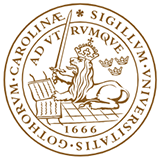
Lund University
-
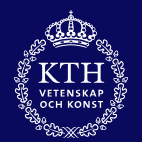
KTH Royal Institute of Technology
-
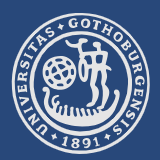
University of Gothenburg
-
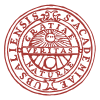
Uppsala University
-
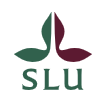
Swedish University of Agricultural Sciences
-

Halmstad University
-
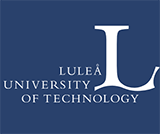
Luleå University of Technology
-
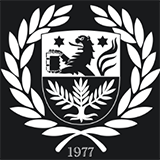
University of Skövde
-
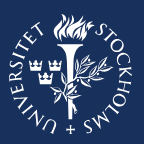
Stockholm University
-

Mesoamerican University
-

Istmo University
-

Mariano Galvez University of Guatemala
-

Regional University of Guatemala
-

Galileo University
-

Francisco Marroquín University
-

Rafael Landívar University
-

University of the Valley of Guatemala
-

University of San Carlos of Guatemala
-

Technological Institute of Tlaxcala Plateau
-

Golfo University
-

Technological University of South Sonora
-

Technological University of Huejotzingo
-

Tizimín Institute of Technology
-

Chilpancingo Institute of Technology
